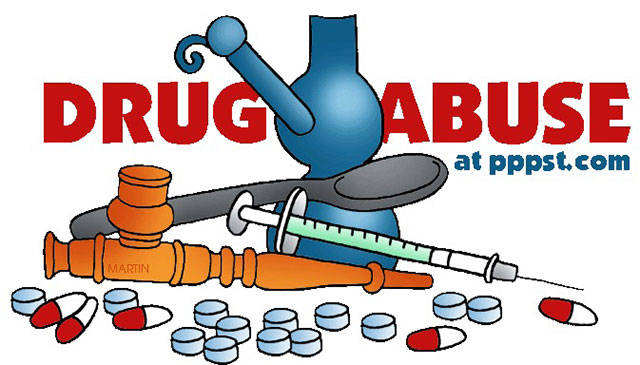In an effort to try to get closer to our kids, sometimes parents will talk to them about their own drug use.
Don’t do it.
“Please stay away from your own experience. It tends to get you into trouble. It’s a slippery slope,” Aubrey Lough of Creating Growth Counseling said at a recent Raising Resilience online Connections Cafe presentation on drug use on Bainbridge Island.
Instead, she recommends doing research with the child to answer their questions.
“Get curious about your kids’ curiosity,” she said. “Let’s be a team and find out some info. I don’t have the answers.”
Lough said it’s better to talk to the child about alternatives to drugs and alcohol when feeling upset, such as a long walk.
BI police Sgt. Trevor Ziemba said for that to work parents need to model the behavior they want the child to copy. Such as if you come home after a bad day and have a drink it shows alcohol as a solution.
“We do this in our profession,” he said, adding parents need to show stress can be resolved without using.
Shawnee Hathaway-Ochs, a student assistance professional at Bainbridge High School, said students are partying differently because of COVID-19. Without school engagement, kids are lonely. Parents are concerned because they think kids are partying more.
“They’re craving other people to be with,” she said, adding they use pot to try to deal with their emotions. “It’s not taking away the reality of what’s going on around them.
“Adults aren’t immune to these issues either.”
Lough added that younger kids are partying with older ones who live in the same neighborhood.
As to where kids are getting drugs, Lough said take a look in the medicine cabinet, even for over-the-counter drugs.
“They’re easily accessible and stealable,” she said, adding if too much is ingested it can be poisonous. “Keep track of stuff.”
Products like liquor can be stolen. Ziemba said the BIPD is working with Safeway because of issues that store has had. And an organized ring stole tens of thousands of dollars worth of booze.
Students have been known to party during online school. One of the Zoom participants said students don’t have to have the sound or video on when they are in school. “They’re not making good choices. They’re under the influence,” the person said.
Ziemba said kids have been known to jump on the ferry and give money to a homeless person to buy drugs or alcohol.
And sometimes, kids order stuff on Amazon.
“I’m always blown away by their creativity,” Lough said, adding Kratom, for example, is addictive and easily obtained.
Ziemba, who won the 2019 National Alliance on Mental Illness Washington Criminal Justice Public Service Award, said there are some good things coming out of parents staying home with students during COVID. By being restricted to the same house, parents can see precursers to addiction.
“Kiddos can’t hide,” he said.
Ziemba said he actually thinks there are fewer parties because of parents being home more. However, “When they do get a chance to party it’s intense,” he said, adding multiple kids have had alcohol poisoning.
Hathaway-Ochs said it can be tough to spot the red flags of substance abuse in teenagers. They could be using pot if they lack motivation, for example, but “They’re not motivated any other day.”
She did say look closely for changes in behavior, such as if they sweat or have the munchies.
Lough said also look for dizziness, drowsiness, irritability, depression and insomnia.
“It can be different for different drugs,” she said.
Hathaway-Ochs said kids are under constant social media pressure to party.
“It’s almost expected of them,” she said, adding videos of parties are all over the internet.
Ziemba said if parents see that kind of thing going on locally they should report it, anonymously if they want.
“We work with care providers,” he said. “We’re not judge and jury.”
In fact, police are often criticized for not doing enough. But he said people often call because they want help.
“It’s not a ‘gotcha’ moment” for police, he said. “It’s a call for help. That’s what we want. We don’t want them to worry about the consequences.”
Ziemba said there are specific laws for when someone should be arrested or ticketed, such as when an older person sells drugs to a younger one.
“We want to know about that,” he said. “We’re not going to live in a fantasy world.”
To make sure parents don’t, Lough recommends not just talking to your kids, but listening closely. Make sure they know if they don’t want to answer a question it’s OK. “That gives you information,” she said, adding its good to start the conversation in grade school so they are comfortable with it later on. “Empower them to talk.”
Lough said parents should not be blind that even top-notch students can be users. She shared a story of when she was at Bainbridge High School.
“An overachiever offered me a line of cocaine at a party,” she said, adding the girl received a scholarship to an Ivy League school. “That’s stuck with me my entire life.”
When you are under pressure to achieve, taking drugs to “stay up late and study doesn’t seem like a bad thing.”
Resources
•www.raisingresilience.org
•BIPD mental health navigator Kelsey Lynch, 360-900-6094.



